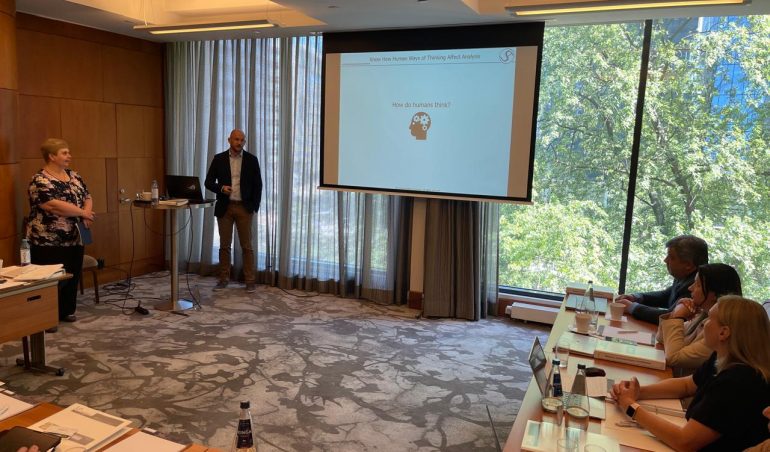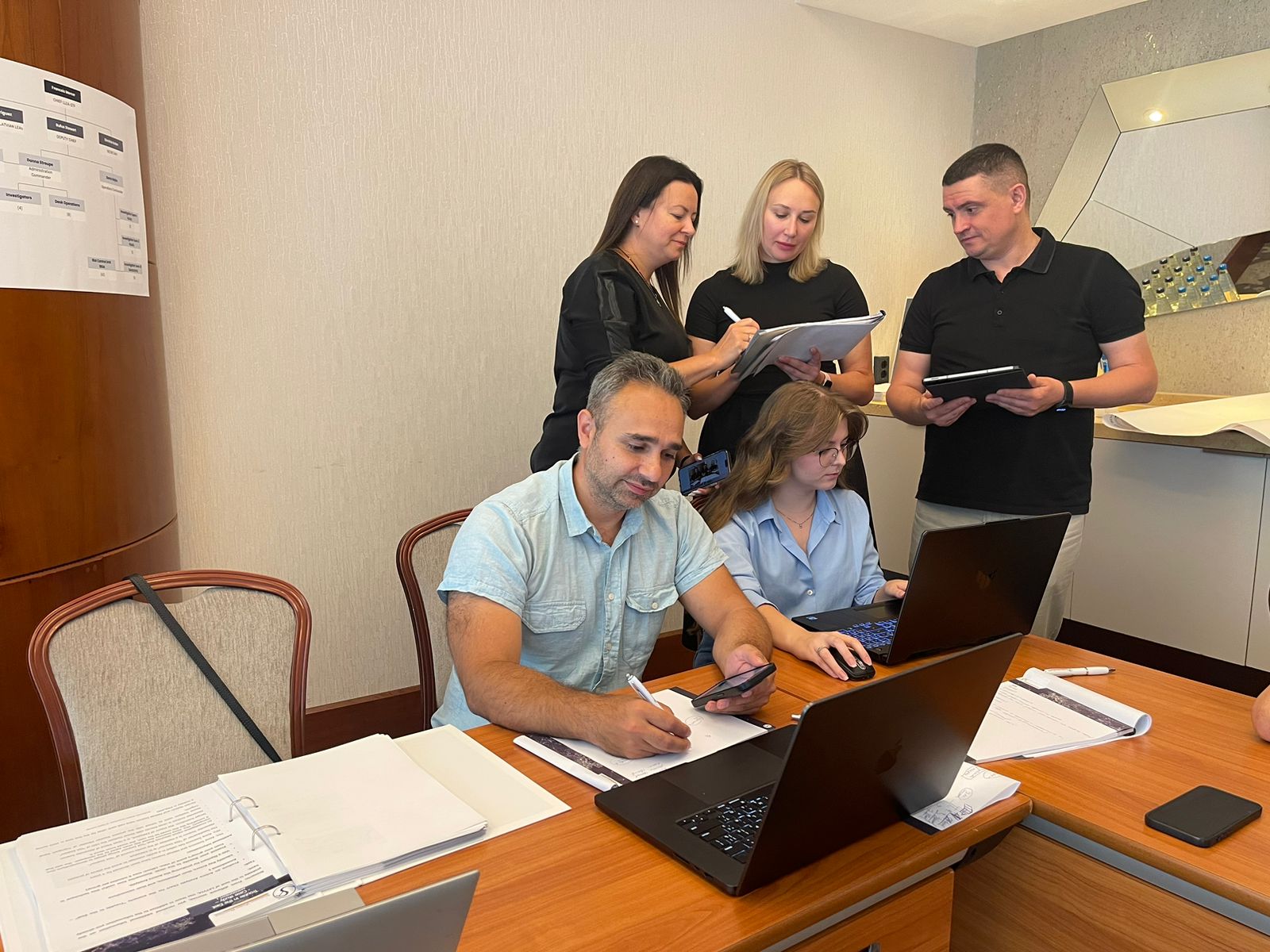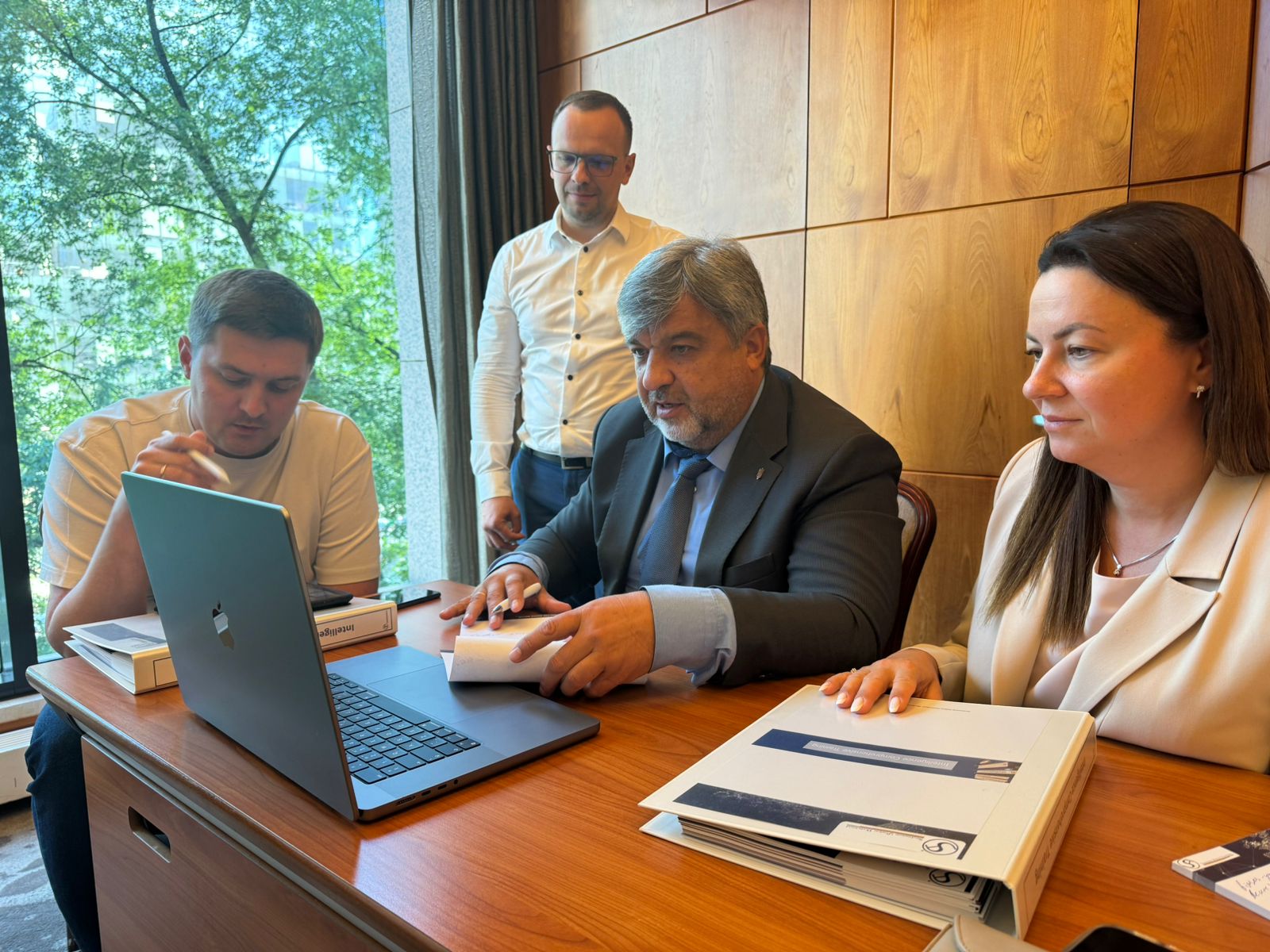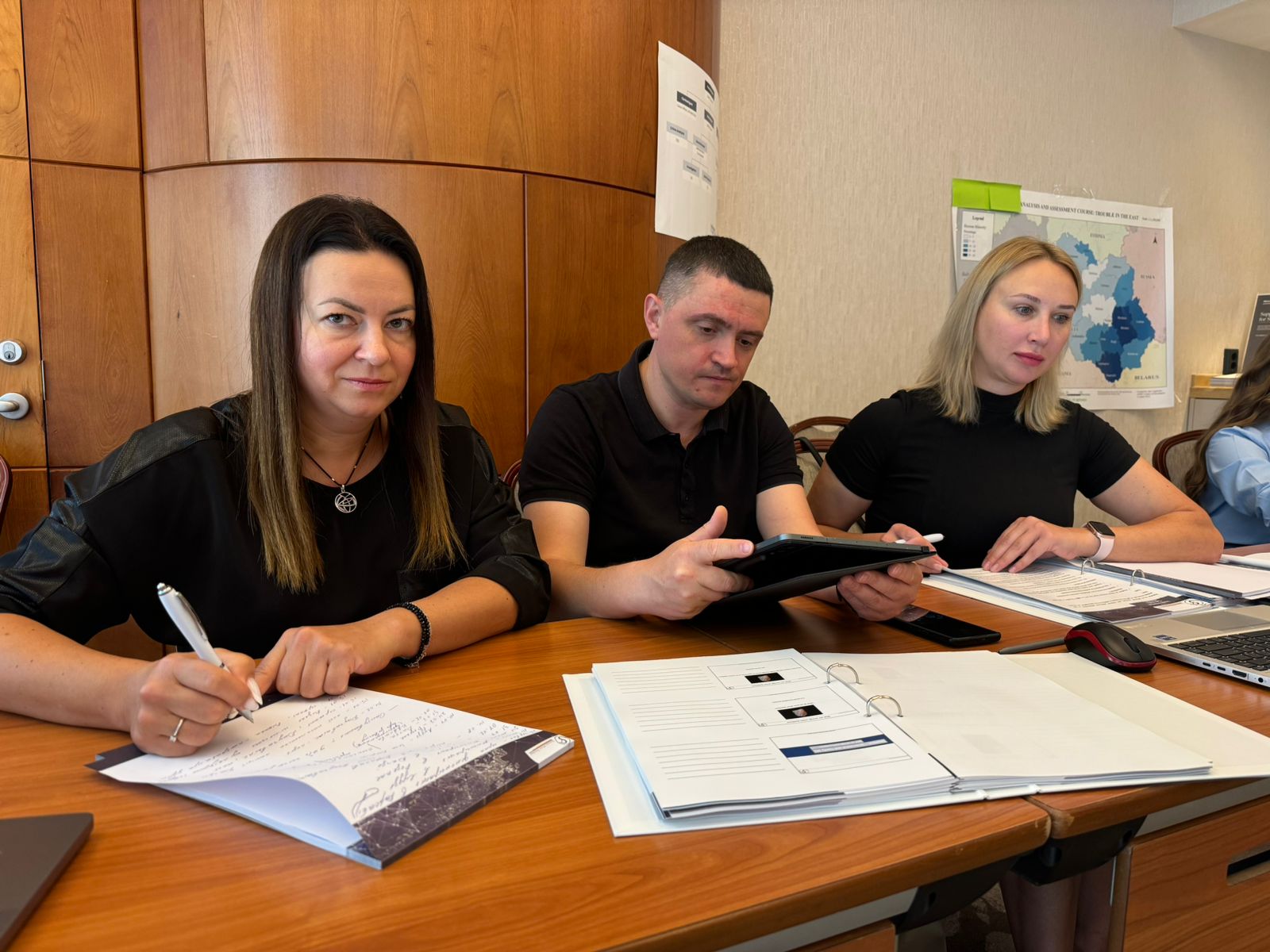The Role of the Intelligence Cycle in Evidence-Based Decision-Making in Policing
August 22, 2024
Intelligence-led policing (ILP) serves as the cornerstone of modern law enforcement, emphasising proactive and preventative strategies over reactive measures. This approach ensures that police forces remain “one step ahead” of criminal activity. For ILP to be effective, the information gathered by police must be carefully collected, collated, thoroughly analysed, and effectively disseminated. This systematic process, which is also known as an Intelligence Cycle, allows law enforcement to respond appropriately and allocate resources where they are most needed.
The Intelligence Cycle is at the heart of ILP and is a critical component that drives evidence-based decision-making in many areas, including policing.

To strengthen the ILP capabilities of our Ukrainian counterparts, the European Union Advisory Mission (EUAM) Ukraine organised an “Intelligence Comprehensive Training” in Warsaw, Poland. The two-week training, delivered by trainer Ole Donner from the German company Strukturierte Analyse Deutschland, gathered Ukrainian analysts from the National Police of Ukraine, the Economic Security Bureau of Ukraine, and academic institutions under the Ministry of Internal Affairs.
The training was designed to equip participants with essential skills in intelligence analysis. It provided an in-depth exploration of the Intelligence Cycle, practical application of 20 Structured Analytical Techniques (SATs), and a thorough understanding of the Analytic spectrum. This programme ensured that attendees built a solid foundation in applying SATs throughout the Intelligence Cycle.

During the course, participants were introduced to the basics of fast and slow thinking, enabling them to understand the relevance of these cognitive processes in their work. They also explored the fundamentals of question framing in intelligence, recognising its importance as a vital tool in analysis. Furthermore, they developed expertise in analysis techniques, which will allow them to review and refine their work. The training also covered the development of scenarios and indicators in a reflective and structured manner.

Participants reported a broader understanding of analytical techniques and an improved ability to apply these methods, especially in generating and testing hypotheses and scenarios, foreseen through teamwork. The training’s effective blend of theory and practice ensured that the acquired skills are directly applicable to their professional duties.
The EUAM Ukraine continues to support law enforcement agencies in Ukraine, including in the realm of intelligence-led policing, particularly evidence-based decision-making via thorough analysis.


